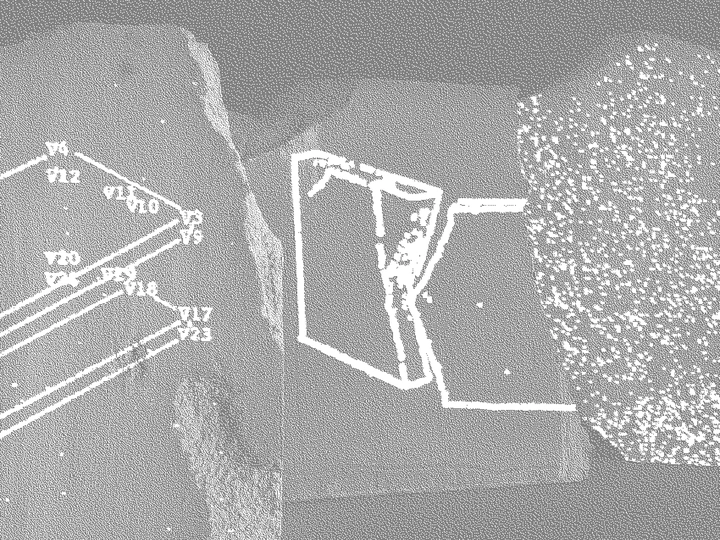Concrete Data

I am an information designer based in the Netherlands. With an interest in organizing collective knowledge, my practice focuses on informational and graphical systems in the context of the material landscape and the built environment.
After completing a BA in communication design with a visual and spatial focus, I collaborated with Circolo del Design Torino (IT) on Atlante Immateriale, an exhibition on regional materials, crafts, and tools. In a long-standing collaboration with the design studio Fionda (IT), I worked with museums, exhibition spaces, and universities across Italy. Among them, we developed the informational system of identity, wayfinding, and exhibition graphics for the second location of the MAXXI museum, situated in L’Aquila (IT). For MAXXI Rome (IT) we worked on two large-scale exhibitions: Tokyo Revisited, exploring the spatiality of Japanese street photography, and Technoscape, narrating the relationship between structural engineering and the technology of our living spaces.
To further develop my practice, I pursued an Information Design MA at Design Academy Eindhoven (NL), where I focused on developing effective methods to communicate the complex relationship between industries' scalability requirements and the environmental challenges of our material landscape.
To explore the potential of architectural 3D scanning tools, I participated in The Self Observing Landscape, a workshop for collective digital exploration of the Alps by the Architectural Association Visiting School.
Currently, I am developing Concrete Data, a research project that began as my Information Design MA thesis, and then grew in scope with a development schedule set for the next two years. The core outcome will be an open-access publication, designed as a collector of knowledge from contributors with expertise in architecture, data science, policy, and insurance to present a cohesive proposal for the redirection of concrete waste’s informational and material flows.
Concrete has a reuse problem. When recovered from demolished buildings, it is crushed, losing its structural and material value, and compacted as filling material under roads. This process of hiding, technically called backfilling, is still considered a recycling practice despite perfectly resembling landfilling. Contrary to reusing, this process does not reduce the production of new concrete or lower the industry's immense carbon footprint.
My research frames this environmental, economic, and political issue as an information problem, highlighting the disparity between construction based on digital modeling tools optimized for standard industrial components and the information-poor irregularly shaped concrete waste. The resulting proposal builds upon historical reuse examples and contemporary technologies to define a set of transformations: from waste matter to point cloud, to information model, to searchable database, to assembling fragments into new structures.
The project will be presented as an online primer or repository of principles, guidelines, and contributions from practitioners in different areas of the construction and design industries. I developed the core text of this open knowledge platform, acting as a horizontal research base, as my Information Design MA thesis at Design Academy Eindhoven. The first contributions will consist of interviews with selected architects, materials researchers, and BIM experts. This opening stage will be presented at Dutch Design Week 2024 through a multimedia installation that sets concrete waste as a narrative protagonist. The creation of a large network of experts, facilitated by the Lina platform, will enable the move to the next phase. This will involve, over the next two years, text commissions to a second cohort of researchers, expanding into data science, structural engineering, policy, and insurance.
Refraining from redesigning concrete, this project proposes to redirect its informational and material flows.